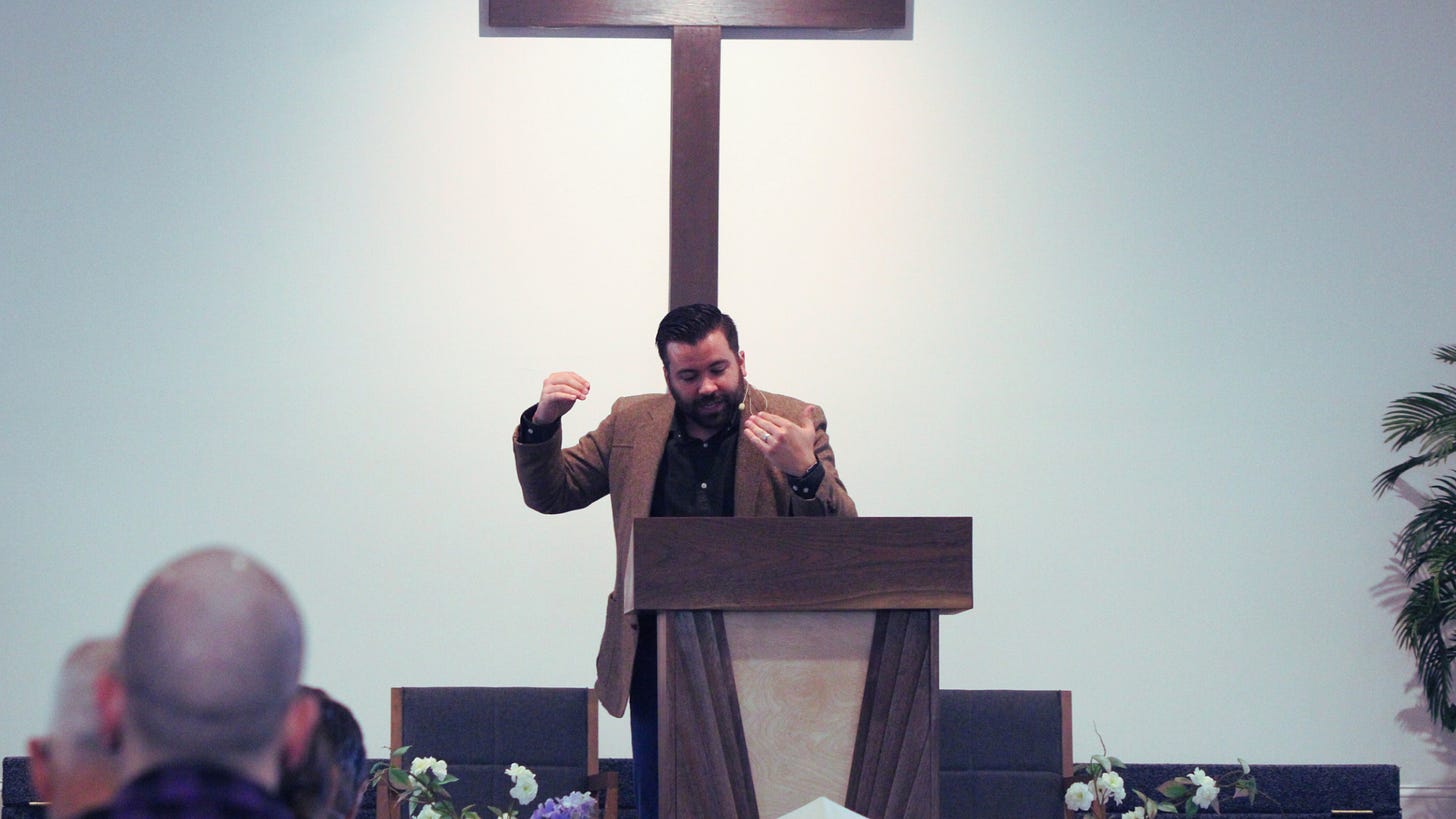The Word That Is Near
What’s exposed when the Word draws near is covered by the nearness of that same Word.
Considering my pastoral heritage, Paul’s suggestion in Romans 10 that God’s words are close at hand — “The word is near you, in your mouth and in your heart” (Rom. 10:8; cf. Deut. 30:14) — has often felt almost like a given reality, bordering on banal. Bearing in mind that my late grandfather was a pastor for five decades and my dad is nearing his thirtieth year with the same congregation, it’s safe to say that I’ve heard my fair share of sermons — from revivals to Saturday morning devotionals to Sunday night seminars and everything in between. I’ve often said, somewhat jokingly, that I “grew up in Sunday school,” but there’s more than a little truth to that sentiment. In many ways, the Word has always felt “near” to me, making it difficult to remember a time when I wasn’t involved in some sort of Scripture memory program or saturated with some Bible study curriculum. And yet, having said that, I can honestly say that the Word has never felt nearer than it does to me right now.
Of course, that might not sound all that surprising, especially since God has called me to carry on my family’s pastoral legacy, with regular preaching responsibilities once or twice a week, sometimes more, not to mention the fact that my most fulfilling hobby includes writing about theology. But experiencing the nearness of God’s Word isn’t merely a matter of saturation or even memorization. Rather, it emerges in conjunction as I confess my own shortcomings and deficiencies, which is what the word of God’s law is meant to expose, and throw myself upon God’s unabating, unending, and unrelenting mercy, as announced in the word of his gospel. This not-so-subtle acknowledgment of the law-gospel paradigm, popularized by everyone’s favorite German reformer, among several other Protestants, is not only an affirming nod to that homiletical distinction but also an admission of my only existential anchor.
My lifeline, if you will, as a Christian, preacher, husband, father, friend, and human being, is tethered to the ministry of the Word, which comes close to shine a blistering spotlight on my weakness and failure, while at the same time gesturing to the one whose grace is sufficient precisely for those who are weak (2 Cor. 12:9). What’s exposed when the Word draws near is, likewise, covered by the nearness of that same Word, which becomes enfleshed in the person of Christ. He who is without blemish or weakness is shown as the one who succumbs to grief and death, so that sinners might be rescued from the grip of both. In him alone, mercy and judgment embrace in a Word that simultaneously unmasks my guilt and clothes me in righteousness not my own.
What steadies me as a preacher, therefore, is Paul’s reminder that in the person of Jesus and the ministry of his Spirit, the Word is already near, in my mouth and on my heart (Rom. 10:8; Jer. 1:9). I am not obligated to make anything of God’s words, nor am I responsible, let alone capable, of discovering innovative ways to unlock their relevance or accessibility. Like Paul and Jeremiah before him, my only errand is to declare the words that break down and build up (Jer. 1:8–10), that kill and make alive (2 Cor. 3:6). And the only words that accomplish this bifold ministry of death and resurrection belong to and are concerned with him who is the Resurrection and the Life. The good news for pastors is that Christ himself puts his words into their mouths, so that all their homiletical verve and rhetorical polish pales in comparison to him who speaks through them. After all, the only words that matter are his, and they’re already at work making all things news.




Three generations of preachers!
How Wonderful!